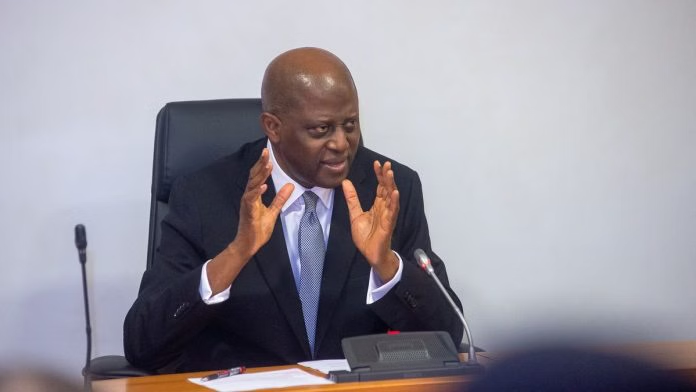Nigeria’s foreign exchange reserves have surpassed $40 billion, reaching their highest level in nearly three years, Central Bank of Nigeria (CBN) Governor Mr. Olayemi Cardoso announced during a symposium in Abuja on Thursday. The event also marked the launch of a publication titled Promoting Stability in an Era of Economic Reforms: The Journey So Far, celebrating the first year of the CBN’s current management team.
In his address, Governor Cardoso highlighted the progress made under his leadership, attributing the achievements to key reforms initiated by the Bank. These reforms, he noted, are beginning to show positive results, particularly in stabilizing the foreign exchange market and boosting reserves.
According to a statement released by the CBN, Cardoso acknowledged the challenges of the past year, including inflation, which peaked at 24.1% in mid-2023. However, he noted that inflation is now on a downward trend, a sign that the Bank’s policies are taking effect.
“The reforms have begun to bear fruit, leading to notable improvements in the FX market and stabilizing foreign reserves, which have now exceeded the $40 billion threshold—the highest in 33 months,” the statement read. “While inflation remains elevated, its current downward trajectory reflects the impact of these reforms in restoring market stability and fostering economic growth.”
Cardoso credited these gains to strong policy measures, including an 850 basis point increase in the Monetary Policy Rate to 27.25% and a rise in the Cash Reserve Ratio for commercial banks to 50%. These steps were designed to control inflation and promote economic stability.
He also noted advancements in the foreign exchange market, such as the elimination of multiple exchange rate windows, which previously caused arbitrage issues and discouraged foreign investment. By streamlining this process, the Bank has tackled a backlog of FX settlements and reduced revenue losses, which were estimated at N6.2 trillion in 2022.
The CBN’s emphasis on boosting foreign remittances is also central to its economic strategy. Cardoso reaffirmed the Bank’s goal of achieving $1 billion in monthly remittances, a key measure to reinforce Nigeria’s foreign reserves and improve economic stability.
Addressing challenges in foreign direct investment and portfolio investments, the CBN has introduced new guidelines for Bureau de Change operators to enhance regulation and reduce disruptions in the FX market.
The CBN’s focus on digital transformation is also integral to its reform efforts. Through its Digital-First Initiative, the Bank has automated key operations, reduced costs, and introduced data-driven tools to enhance policymaking. These efforts include the launch of an Integrated Data Collection and Sharing Portal and the establishment of an Investor Relations Unit to foster a transparent and investor-friendly environment.
Cardoso underscored the importance of collaboration between fiscal and monetary authorities, noting that cohesive policymaking is essential for addressing Nigeria’s economic challenges.
Lagos State Governor Babajide Sanwo-Olu, who attended the event, commended the CBN’s leadership for its commitment to transparency and accountability. He also called for unity in tackling Nigeria’s economic issues, praising the Bank’s efforts to strengthen the nation’s financial stability.











